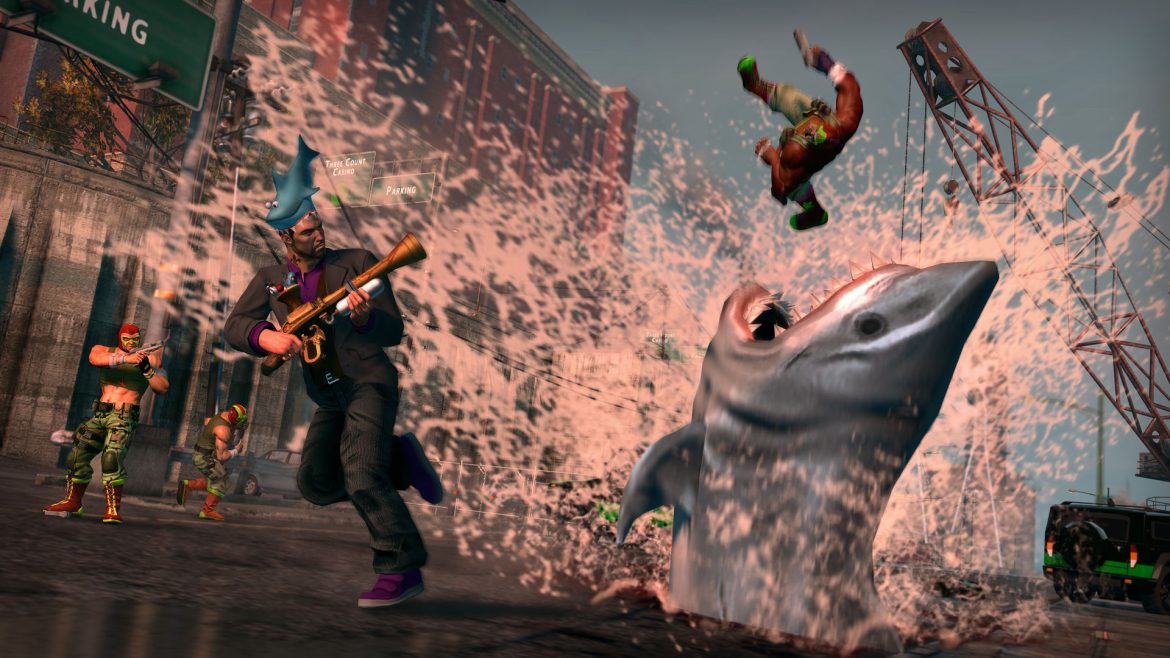Welcome back readers.
We’re on Wizard Time (Critical Distance is never late, etc., etc.) this week, but thanks for waiting!
This Week in Videogame Blogging is a roundup highlighting the most important critical writing on games from the past seven days.
The Hot Goss
This week we open with reflections on new and popular games and texts, dwelling on both on what has been said and what is all-too-often left unsaid.
- Immortality is a Meditation on the Worth of an Artist | Fabyte
Imran Khan wrestles with the metafictional, metatextual aspects of Immortality‘s half-answered questions about art and artist. - We Are OFK’s Marketing Belies a Larger Issue for Indie Games | Uppercut
Ty Galiz-Rowe looks at We Are OFK and contemplates how Wholesomeness as a brand continues to shape how games are made, marketed, and sometimes misrepresented to an increasingly sensitive, at times even hostile audience. - The Hopeful Disharmony of Into the Doomed World | Unwinnable
Phoenix Simms contemplates collectivity in crisis, via Into the Doomed World, contemporary anticapitalist indie games, and more.
“Narratives that center on the collective don’t let us off easy with regards to our individual responsibility to know and care for each other and our plural, interconnected realities. Into the Doomed World aptly gets at how life in the social media age is a complex navigation of being an individual that pivots between micro and macro perspectives. It focuses on the beauty of recognizing the disharmony within a community and how we can work together to reconcile it during times of crisis.”
Memory Card
Our next pairing explores retro games and nostalgia, with old-new and new-old games, respectively.
- Examining the strangest demo for Moon: Remix RPG Adventure | Vidyasaur
Vidyasaur revisits peculiar anti-RPG cult classic Moon in an equally-but-differently peculiar rough draft form. - Frogun (PC) Review | Video Game Choo Choo
Maverick picks up a game that knocks the look, and much of the feel, of several bygone eras of games out of the park, but struggles to find purchase with its own shaky foundation.
“The unfortunate reality is that for a game that revels in the simplicity of the 1990s, it also showcases the reality of developers learning how to maneuver through three dimensional spaces, and how every successful game was built on the backs of dozens of flops.”
Flash Friction
How about some crunchy structural analysis of form, narrative, and spatiality?
- Paradise Killer’s Biggest Secrets are Straight Up | Unwinnable
Caroline Delbert brings verticality to bear in her serialized spatial meditation on Paradise Killer. - Call, Response, Repeat: Rhythm Games As Short Form Fiction | Paste
Madeline Blondeau wastes no words in her breakdown of the punchy narrative structure and stylings of Parappa, DDR, DJMax, and more.
“To read flash is to take out your fine tooth comb, willfully, and pick something apart. In a good work of flash, each word has meaning and every syllable has a place. It teaches you to read with a more stringent eye, and forces speedreaders to slow down for once. Likewise, each button press in a rhythm game matters. A dropped or delayed input can spell the difference between a high score and your worst run. It can’t be mashed around—you need to be able to sound each input out on your controller, in time, in sequence.”
Seen and Scene
Two new meditations on identity and visibility, both in and out of game.
- Saints Row Helped Me Realize I’m Trans | Fanbyte
Jennifer Heaton identifies customization as key to identity exploration, in Saints Row 2 as well as the recent reboot. - Is The Gaming World Truly Proud of Disabled Gamers? | Uppercut
Sherry Toh contrasts the rising prominence and mainstreaming of accessibility features in popular games with a comparative lack of attention on and celebration of disabled players and Disability Pride.
“To me, John’s story illustrates why Disability Pride and disability representation should matter in gaming spaces: because when you’re battling for your life, whether in terms of illnesses or the legacy of systemic ableism — as Martinez and I are now, fighting against the healthcare policies designed without input from the disabled in our countries, in order to access critical treatments — you need a reminder that it’s worthwhile to live, not least surrounded by people like you.”
Critical Chaser
A short & poignant reflection from Spine sees us out this week.
- “I Swear” – Into The Spine
José Romero ponders the weight of the fateful choice bridging The Last of Us parts I & II.
“As terrible as it sounds, why save a world with nothing left for you?”
Subscribe
Critical Distance is community-supported. Our readers support us from as little as one dollar a month. Would you consider joining them?
Contribute
Have you read, seen, heard or otherwise experienced something new that made you think about games differently? Send it in!


